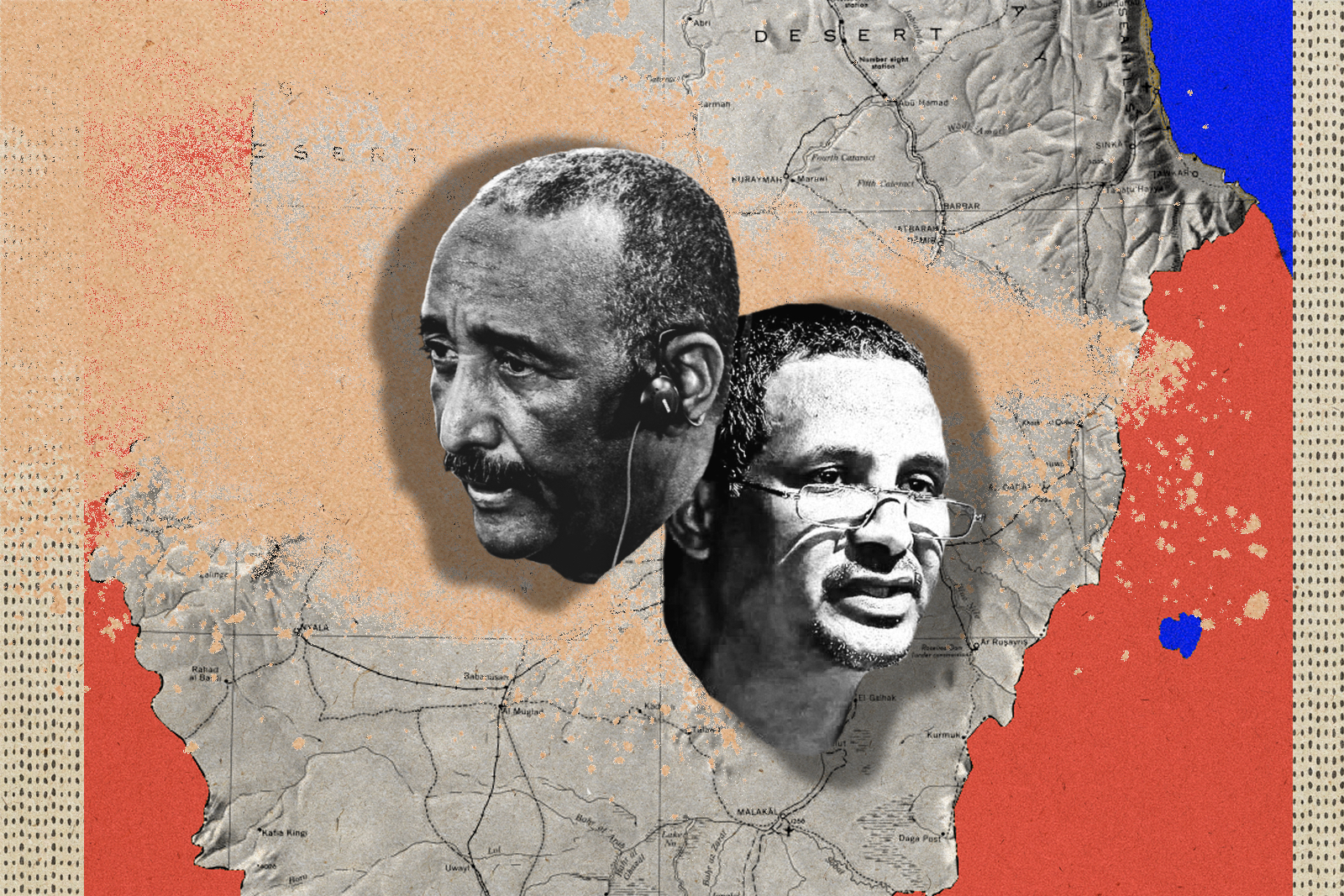
The Ethnic Cleansing of Darfur Must End Now
The world’s eyes are on Gaza, where Hamas holds the Palestinian population hostage alongside the Israeli soldiers and civilians kidnapped during its cross-border attack on October 7. Amid the protests sweeping across America and Europe, accusations against Israel of genocide and ethnic cleansing dominate the discourse. However, it is in Sudan where ethnic cleansing is currently taking place.
Gruesome testimonies reveal the horrific atrocities of the Sudanese civil war—the large-scale massacre of civilians as they desperately tried to flee an ethnic rampage in Darfur last summer. Human Rights Watch has collected evidence that the Rapid Support Forces (RSF), under the command of Mohamed Hamdan Dagalo, commonly known as Hemetti, orchestrated a targeted campaign of ethnic cleansing against Sudan’s non-Arab Masalit tribe in West Darfur.
Witnesses describe children being tortured and shot by the paramilitary RSF as they attempted to escape the regional capital of Al Junaynah in June last year, during a wave of ethnic violence in which thousands of civilians were killed. Sudan risks becoming an al-Qaida stronghold—a potential base for orchestrating attacks on the U.S. and its allies. An RSF takeover in Sudan could parallel pre-9/11 Afghanistan, where Taliban rule facilitated the rise of al-Qaida.
“Sudan’s moment has come; chaos is our chance to sow the seeds of jihad,” warned Abu Hudhaifa al-Sudani, a high-ranking al-Qaida leader, in an October 2022 manifesto.
A year of brutal civil war has now plunged Sudan into the kind of chaos in which terrorist groups thrive. The risk of al-Qaida gaining ground in Sudan is very real, imperiling not only the country but also regional—and potentially global—security. This resurgence comes at a time when the United States, distracted by commitments in Europe, the Middle East, and the strategic challenge posed by China, appears to have deprioritized Sudan.
In April 2023, fighting broke out in Sudan between the Sudanese Armed Forces and the paramilitary RSF, creating a power vacuum that extremists are eager to fill. Meanwhile, the RSF has been solidifying its grip on strategic areas such as Darfur and southern Khartoum. Sudan has been entangled in civil conflict long before the recent hostilities, a situation that escalated in 1989 with Omar al-Bashir ‘s coup, which veered the country towards radical Islamist beliefs. He enforced Sharia law and hosted al-Qaida leader Osama bin Laden in 1991. During this period, bin Laden set up training facilities and broadened al-Qaida’s financial base, ultimately contributing to the planning of the 9/11 attacks. Due to its terror affiliations, Sudan was compelled to deport bin Laden in 1996.
Omar al-Bashir further entrenched his connections with extremist groups by backing the Janjaweed militia, perpetrators of the 2003 Darfur genocide. In response to international pressure, he reformed the Janjaweed into the RSF in 2013 under Hemetti’s command, maintaining their notorious tactics. The 2021 coup led by General Abdel Fattah al-Burhan, now the de facto ruler of Sudan, and Hemetti quickly deteriorated into a feud between the two, sparking the current turmoil in Sudan.
With Hemetti now leading, the RSF continues their harsh operations in West Darfur, reportedly targeting the native Masalit people with acts of ethnic cleansing.
The potential for al-Qaida to leverage Sudan’s wealth of resources—namely oil, gold, and fertile land—significantly raises the stakes for global security. While al-Qaida’s activities in resource-poor Afghanistan yielded catastrophic results, its operations could reach a new level of threat given Sudan’s richer environment. The nation’s strategic assets offer a potent foundation for whoever controls it. As seen during Omar al-Bashir’s era, establishing ties with either faction in Sudan’s ongoing civil conflict could provide al-Qaida with substantial financial gains.
More worryingly, Sudan’s access to the Red Sea could position it as a more significant threat than Iraq and Afghanistan combined, enhancing its strategic importance on the global stage. Establishing a stronghold in Sudan could enable al-Qaida to extend its influence across Yemen, Somalia, and the Sahel region, potentially heightening regional conflicts and jeopardizing vital Red Sea trade routes. A United Nations report from July 2022 disclosed that al-Qaida’s branch in Yemen had been augmenting its naval capabilities, hinting at an expanded maritime threat.
A resurgent al-Qaida in this region would likely lead to increased maritime piracy, militarized blockades, and an unchecked flow of arms, thereby escalating regional tensions and contributing to broader geopolitical instability. Faced with limited resources, an array of global threats, and fatigue from prolonged engagements in the Middle East, the U.S. finds itself in a precarious position to effectively counter al-Qaida’s potential consolidation in Sudan.
The implications of Sudan becoming a central hub for global terrorism are profound. Drawing lessons from the rise of the Taliban in Afghanistan and the emergence of the Islamic State group in Iraq and Syria, the global community must recognize the severe consequences of underestimating the strategic importance of Sudan in the fight against terrorism. The world must turn its focus to Sudan and end the ethnic cleansing in Darfur. The urgency to address this issue is paramount, as the cost of inaction could be devastating on a global scale.
